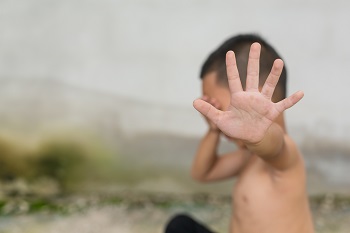
Authors who publish with this journal agree to the following terms:
- Authors retain copyright and grant the journal right of first publication with the work simultaneously licensed under a Creative Commons Attribution Non-Commercial License that allows others to share the work with an acknowledgement of the work's authorship and initial publication in this journal.
- Authors are able to enter into separate, additional contractual arrangements for the non-exclusive distribution of the journal's published version of the work (e.g., post it to an institutional repository or publish it in a book), with an acknowledgement of its initial publication in this journal.
- Authors are permitted and encouraged to post their work online (e.g., in institutional repositories or on their website) prior to and during the submission process, as it can lead to productive exchanges, as well as earlier and greater citation of published work (See The Effect of Open Access).
Abstract
Of late, sexual exploitation of minors has become a raging issue for several nations across the world. Our neighbouring South Asian country Afghanistan sees a disturbingly high incidence of sexual exploitation cases, of which the practice titled Bacha Bazi has drawn widespread attention and criticism from all quarters. In this practice of Bacha Bazi, young boys are made to dress up in feminine clothes and make up, sexualized and subsequently, in a lot of cases, forced into the flesh trade. Prostitution and slavery of these young boys has become rampant. In this paper, the reasons for sexual exploitation of minors have been traced upon generally, and the resurgence of the practice of Bacha Bazi in Afghanistan in particular. Taliban?s role in abolishing Bacha Bazi has been detailed, as has lawlessness post-Taliban rule been described, which became a major reason for the blooming of this depraved practice. The role of the taboo of homosexuality in conservative Afghanistan in the flourishing of Bacha Bazi has been discussed. Finally, the lack of willingness of the international community to fight against Bacha Bazi has been touched upon, and suggestions for the elimination of this depraved practice have been provided. However, it has been admitted by noted human rights scholars that such a practice is very difficult to abolish in practical life, even as it threatens to challenge the very basic foundation of human rights and civilization in the 21st century.
Keywords

References
“Afghanistan’s dancing boys.” The New Humanitarian (18 September 2013). Available from: http://www.irinnews.org/report/98776/afghanistans-dancing-boys [accessed 22 Oct. 2018].
“Bacha Bazi: The stolen childhood of boys turned into dancers, sex slaves in Afghanistan.” Hindustan Times (26 June 2017).Available from: https://www.hindustantimes.com/world-news/bacha-bazi-the-stolen-childhood-of-boys-turned-into-dancers-sex-slaves-in-afghanistan/story-5FrGrKI2PzrSRynHSfzh2N.html [accessed 22 Oct 2018].
“Kandahar comes out of the closet.” Free Republic (11 January 2002). Available from: http://www.freerepublic.com/focus/fr/606581/posts [accessed 20 Oct. 2018].
“Stolen boys: Life after sexual slavery in Afghanistan.” thejournal.ie (1 July 2017). Available from: http://www.thejournal.ie/sex-slave-afghanistan-bacha-bazi-children-3464413-Jul2017/ [accessed 22 Oct. 2018].
“Taliban use ‘honey trap’ boys to kill Afghan police.” Dawn (16 June 2016). Available from: https://www.dawn.com/news/1265215 [accessed 22 Oct. 2018].
Afghanistan Independent Human Rights Commission (AIHRC).
“Causes and Consequences of Bacha Bazi in Afghanistan.” (18 August 2014). Available from: http://www.refworld.org/docid/5694c3db4.html [accessed 18 October 2018].
Afghanistan Penal Code, Article 427.
Agence France-Presse. “Kabul to investigate child sex slavery fuelling insider attacks.” The Tele-graph (28 June 2016). Available from: https://www.telegraph.co.uk/news/2016/06/28/kabul-to-investigate-child-sex-slavery-fuelling-insider-attacks/ [accessed 20 Oct. 2018].
Chopra, Anuj. “Taliban use ‘honey trap’ boys to kill Afghan police.” Yahoo News (16 June 2016). Available from: https://sg.news.yahoo.com/taliban-honey-trap-boys-kill-afghan-police-https://sg.news.yahoo.com/taliban-honey-trap-boys-kill-afghan-police-034032058.html [accessed 20 Oct. 2018].
Everett, Will. “Confessions of an Afghan Boy Sex Slave.” Newsweek (30 May 2015). Available from: https://www.newsweek.com/confessions-afghan-boy-sex-slave-337381 [accessed 19 Oct. 2018].
Hamed, Sayed. “Bacha Bazi, the ugly life of Afghanistan’s ‘dancing boys’.” The Afghan Dispatch (9 March 2017). Available from: https://www.afghandispatch.com/bacha-bazi/ [accessed 22 Oct. 2018].
NOVUM JUS • ISSN: 1692-6013 • E-ISSN: 2500-8692 • Volumen 13 No. 2 • Julio - Diciembre 2019 • Págs. 41-55Why the Issue of Bacha Bazi Deserves International Attention
Human Rights Watch. “World Report 2014: Afghanistan.” Human Rights Watch (n.d.). Available from: https://www.hrw.org/world-report/2014/country-chapters/afghanistan.
Human Terrain Team. “Pashtun Sexuality.” (n.d.). Available from: https://info.publicinte-lligence.net/HTT-PashtunSexuality.pdf [accessed 21 Oct. 2018].
Kaur, Harjot and Najla Ayubi. “Status of Women in Afghanistan.” The Asia Foundation (21 January 2009). Available from: https://asiafoundation.org/2009/01/21/status-of-women-in-afghanistan/ [accessed 1 Feb. 2019].
Legal Information Institute. “22 U.S. Code § 2378d -. Limitation on assistance to security forces.” (n.d.). Available from: https://www.law.cornell.edu/uscode/text/22/2378d
Mondloch, Chris. “Bacha Bazi: An Afghan Tragedy.” Foreign Policy (28 October 2013). Available from: https://foreignpolicy.com/2013/10/28/bacha-bazi-an-afghan-tragedy/ [accessed 19 Oct. 2018].
Qobil, Rustam. “The sexually abused dancing boys of Afghanistan.” BBC News (8 September 2019). Available from: https://www.bbc.com/news/world-south-asia-11217772 [accessed 19 Oct. 2018].
Special Inspector General for Afghanistan Reconstruction (SIGAR). Child Sexual Assault in Afghanistan: Implementation of Leahy Laws and Reports of Assault by Afghan Security Forces. (2018). Available from: https://sigar.mil/pdf/inspections/SIGAR%2017-47-IP.pdf [accessed 20 Oct. 2018].
United Nations Assistance Mission in Afghanistan. “UNAMA welcomes Afghanistan’s new penal code - Calls for robust framework to protect women against violence.” (22 February 2018). Available from: https://reliefweb.int/report/afghanistan/unama-welcomes-afghanistan-s-new-penal-code-calls-robust-framework-protect-women [accessed 21 Oct. 2018].
United Nations Regional Information Centre for Western Europe (UNRIC). “The dancing boys of Afghanistan.” (19 March 2018). Available from: https://www.unric.org/en/latest-un-buzz/29091-the-dancing-boys-of-afghanistan [accessed 18 Oct. 2018].
United States Commission on International Religious Freedom (USCIRF). “USCIRF Annual Report 2014 - Tier 2: Afghanistan.” (30 April 2014). Available from: http://www.refworld.org/docid/5369e5b310.html [accessed 22 October 2018].
Yerman, Marcia G. “The Dancing Boys of Afghanistan Examines Sexual Abuse in Afghanistan.” HuffPost (2 August 2012). Available from: https://www.huffingtonpost.com/marcia-g-yerman/the-dancing-boys-of-afghanistan_b_1260667.html [accessed 22 Oct. 2018].




















